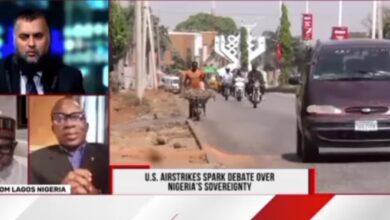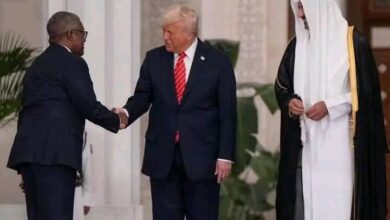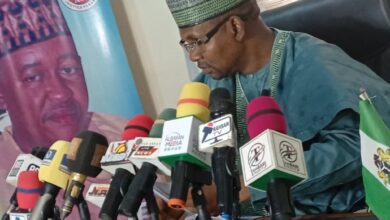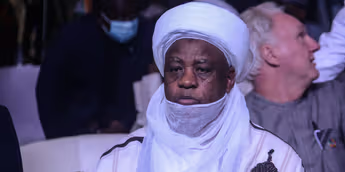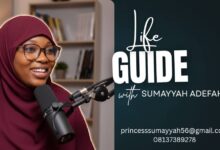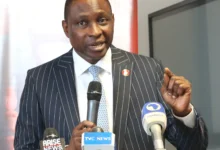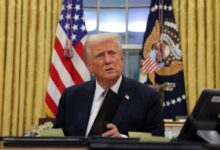Weighing Church’s claims, counter-claims over Southern Kaduna killings

“The Catholic Archdiocese of Kafanchan said 808 people were killed in Southern Kaduna by gunmen in the past “weeks and months.” The church disclosed this in Kafanchan during a press conference led by the Vicar General of the Catholic Archdiocese of Kafanchan, Ibrahim Yakubu….A community leader in Dangoma, a Hausa-Fulani settlement, Isiyaku Dangoma, said they are the victims of indigenous Goska ethnic group’s aggression. He said he lost an uncle and a sister since the Christmas eve crisis in Goska. “I am 47 and I was born in Dangoma. But whenever there is any incident, the indigenous ethnic groups descend on Hausa-Fulani in Dangoma for no reason,” he said. The community leader said they have been living peacefully with their neighbours. But after that attack in Goska, Dangoma was surrounded and our people were killed.” He said the renewed hostility may not be unconnected to the discovery of Nickel, a multi-million dollar minerals recently in Dangoma, which is a Fulani community.”
The Catholic Archdiocese of Kafanchan said 808 people were killed in Southern Kaduna by gunmen in the past “weeks and months.” The church disclosed this in Kafanchan during a press conference led by the Vicar General of the Catholic Archdiocese of Kafanchan, Ibrahim Yakubu. Since the church released these figures on December 29 last year, other organizations have equally come up with counter-figures. The incessant attacks necessitated the deployment of military units as well as special squads of the Nigerian Police by federal government to end the pogrom.

On the other hand, the security agencies, Kaduna State government, Muslim groups, Hausa-Fulani socio-cultural organisations dispute these claims. Apart from identifying “Fulani-herdsmen” as the aggressors, executing an “Islamisation” agenda, the church also made another claim that “808 people (Christians) were killed, 57 injured in 53 villages across four local governments.”
The figure thrown up by the church has elicited controversy and outright denial. For instance, the Inspector-General of Police Ibrahim Idris was the first senior security chief to deny the church’s claim. But the church didn’t provide a timeline of the attacks. The statement only mentioned the number and names of villages where the attacks purportedly took place, but the dates were missing. The only reference made by the church on the dates of the attacks was that they occurred “in the last weeks and months.”
Not all stakeholders even among the Christian community believed the Catholic Church’s claim. The Christian Association of Nigeria (CAN) said “over 100 Christians” were killed in Southern Kaduna since “May last year.” CAN disputed the Catholic Church figures a day after a senator representing Southern Kaduna at the Senate, Danjuma La’ah moved a motion, saying “808 of his constituents were killed.”
It wasn’t clear whether CAN had conducted an investigation and discovered that only “over 100” of their members were killed out of the 808.
Checks show that reconciliation efforts were recommended by the General Martin Luther Agwai-led committee on Southern Kaduna crisis. A Kaduna government official who declined being named said it was based on this the state is reaching out to all parties. He said the way accusations and counter-accusations are being hauled by religious groups is capable of further inflaming the crisis.
The Jama’a Foundation, Muslim Youths Foundation of Southern Kaduna, the Kaduna State Council of Ulama and Imams, denied the Christian leaders claims. They said, the aggressors are the Christian majority. The blame game and counter-accusations seemed to remain unabated even at the theatre of the crisis when Daily Trust spoke to community leaders.
The National Secretary-General of Miyetti Allah, Ibrahim Abdullahi told this reporter that it is not correct to say only indigenous Christians are affected by the crisis. He said nomadic Fulani have been at the receiving end of the indigenous ethnic groups hostilities, leading to dozens deaths, destruction of hundreds herders farmsteads and herds of cattle.
Ibrahim said dozens of Fulani herders were killed and their property destroyed in Ninte, Godogodo, Gadabiyu, Golgofa, Samaru, among others. The Miyetti Allah chieftain said the crisis is mostly reprisals by herders from neighbouring countries whose kith and kin were killed along grazing routes in Southern Kaduna.
A community leader in Dangoma, a Hausa-Fulani settlement, Isiyaku Dangoma, said they are the victims of indigenous Goska ethnic group’s aggression. He said he lost an uncle and a sister since the Christmas eve crisis in Goska. “I am 47 and I was born in Dangoma. But whenever there is any incident, the indigenous ethnic groups descend on Hausa-Fulani in Dangoma for no reason,” he said. The community leader said they have been living peacefully with their neighbours. But after that attack in Goska, Dangoma was surrounded and our people were killed.” He said the renewed hostility may not be unconnected to the discovery of Nickel, a multi-million dollar minerals recently in Dangoma, which is a Fulani community.
Checks show that reconciliation efforts were recommended by the General Martin Luther Agwai-led committee on Southern Kaduna crisis. A Kaduna government official who declined being named said it was based on this the state is reaching out to all parties. He said the way accusations and counter-accusations are being hauled by religious groups is capable of further inflaming the crisis.
This story earlier appeared in Daily Trust of 14/01/2017.


